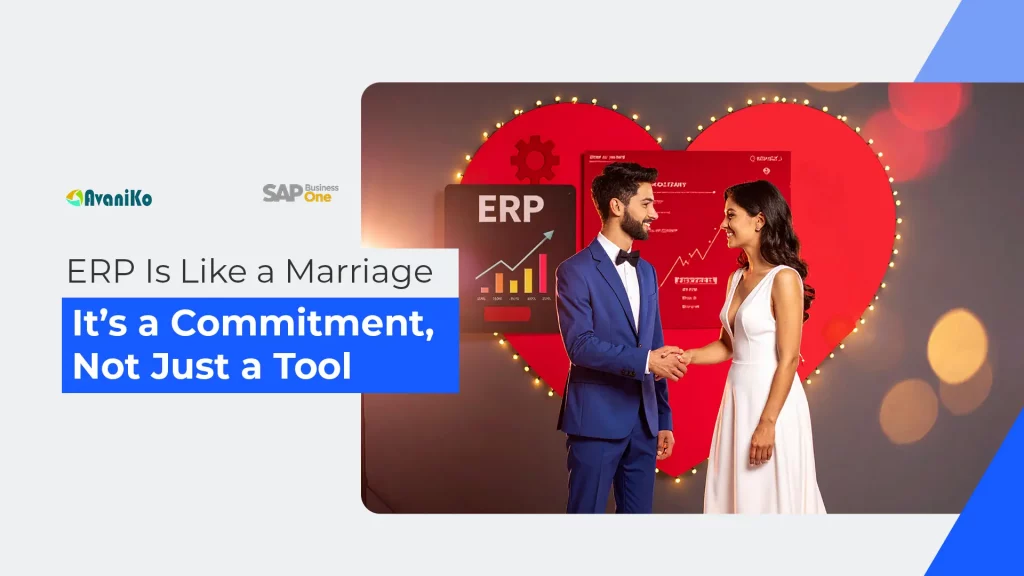ERP Is Like a Marriage – It’s a Commitment, Not Just a Tool

When small and medium-sized businesses start thinking about ERP (Enterprise Resource Planning) systems, they often approach it like shopping for software look for features, compare prices, maybe read a few reviews.
But here’s a better way to think about it
Implementing ERP is like getting married.
It’s not just about what looks good on the surface -it’s about building something that works over time, through good and bad, with a partner you can trust. That might sound dramatic, but the analogy holds. Let’s break it down.
💘 Step 1: Don’t Rush the Relationship
You wouldn’t marry someone after one date (hopefully). You’d spend time getting to know them – their habits, values, and how they handle challenges.
The same goes for ERP.
Before making a decision about a system, it is crucial to:
- Understand your business’s real needs
- Evaluate how different ERP platforms align with your workflows
- Talk to vendors and get demos – not just brochures
A rushed decision can lead to mismatched expectations and expensive breakups (a.k.a. switching systems later).
🧠 Step 2: Know Yourself Before You Commit
Being clear about who you are and what you want is similar to being in a relationship
- Knowing your business processes inside and out
- Identifying pain points in operations, inventory, finance, HR, etc.
- Setting goals (e.g., “I want better visibility across departments” or “I need real-time data to make faster decisions”)
ERP implementation will be more effective if you have more knowledge about your business.
💬 Step 3: Communication Is Everything
Your departments, such as finance, sales, inventory, and HR, can be managed under one roof with a good ERP system. But this only works if your teams are aligned and the system is properly
implemented.
Communication matters:
Internally: Everyone needs to know why the ERP is being introduced and how it will help them.
With your vendor: You need a partner who listens, guides, and supports – not just someone selling you a license. Just like in a marriage, if you don’t talk, things fall apart.
🧰 Step 4: The Real Work Starts After the Honeymoon
The day your ERP goes live isn’t the end – it’s the beginning. There will be:
- Training needs
- Process adjustments
- Bugs to fix
- Resistance from team members
But just like building a life together, ERP success depends on daily effort. The more your team learns and adapts, the more value you’ll get out of the system.
👥 Step 5: It’s a Partnership – Not a One-Way Street
ERP isn’t a magic fix. It won’t run your business for you. But it can:
- Eliminate manual work
- Give you real-time insights
- Streamline operations
- Help you scale efficiently
But only if you treat it like a partner – someone you collaborate with, evolve with, and invest in over time.
💡 Final Thought:
ERP is not a fling. It’s a serious commitment. Choose carefully. Communicate clearly. Grow together.
If you treat ERP like a one-time purchase, you’ll miss the point. But if you treat it like a long-term relationship – with planning, patience, and ongoing effort – it can become one of the best decisions your business ever makes.